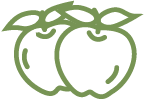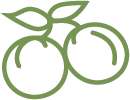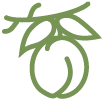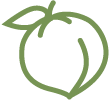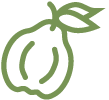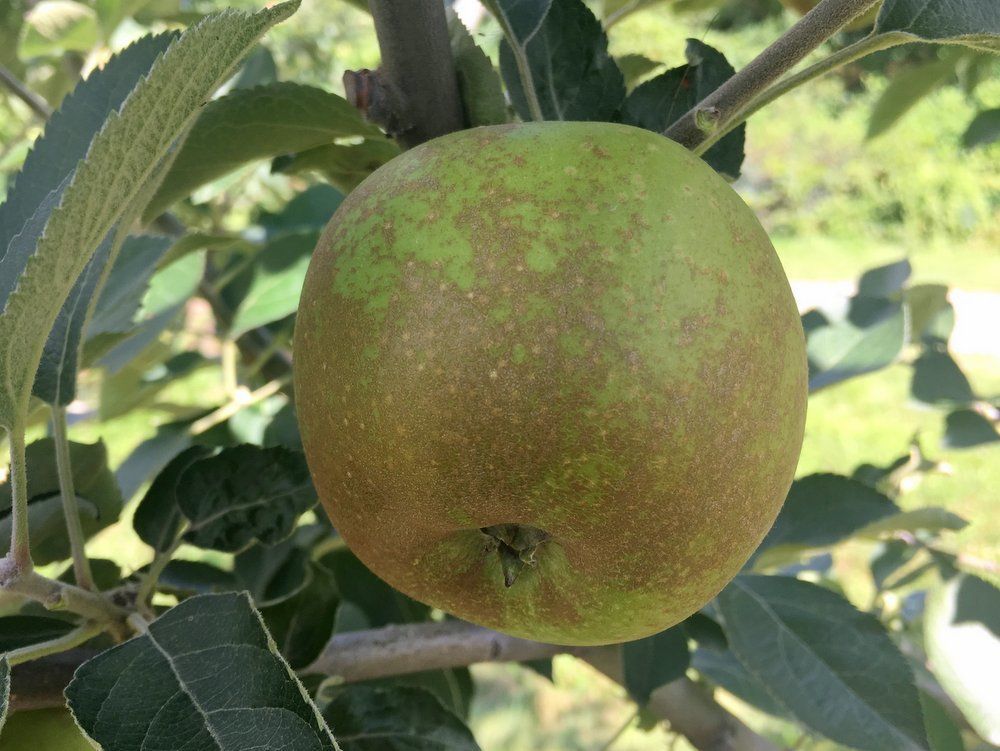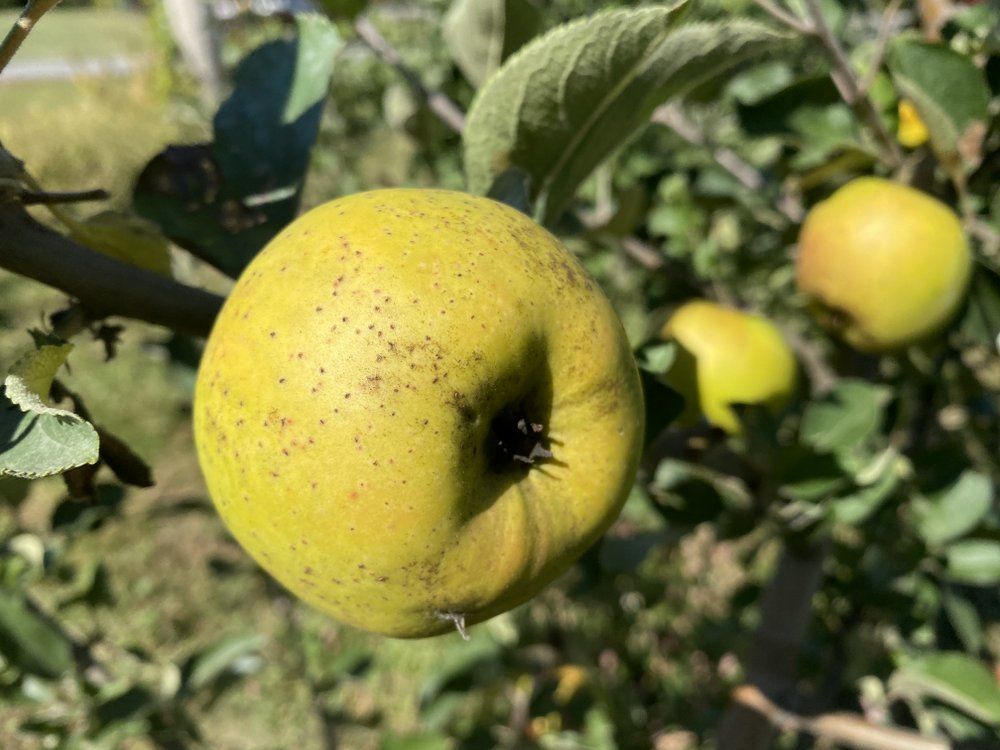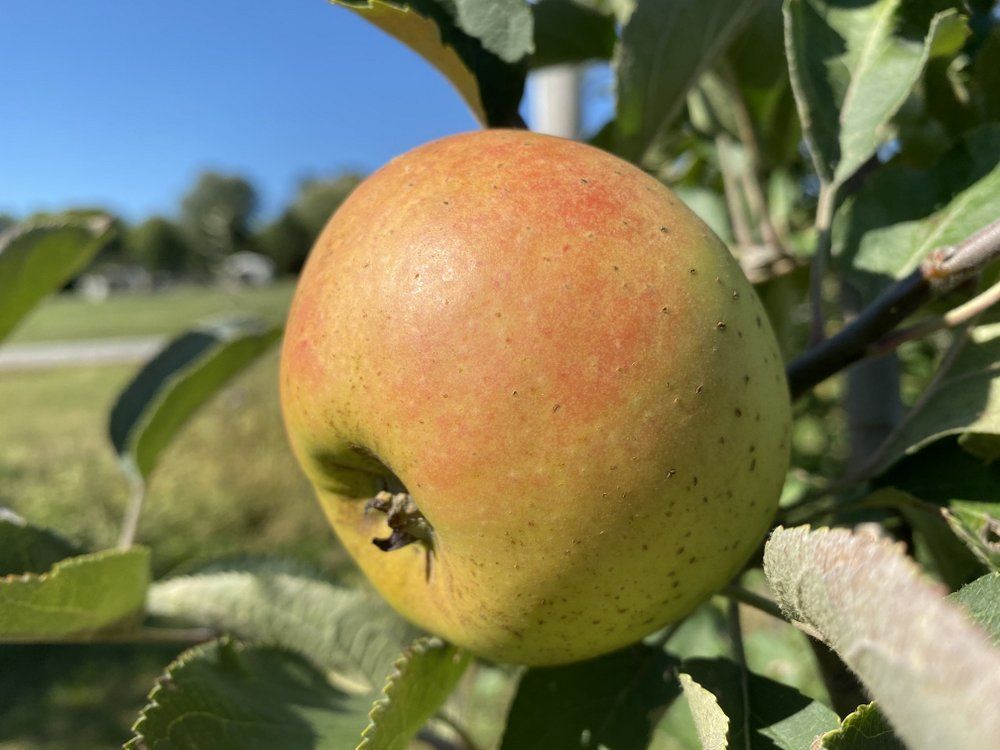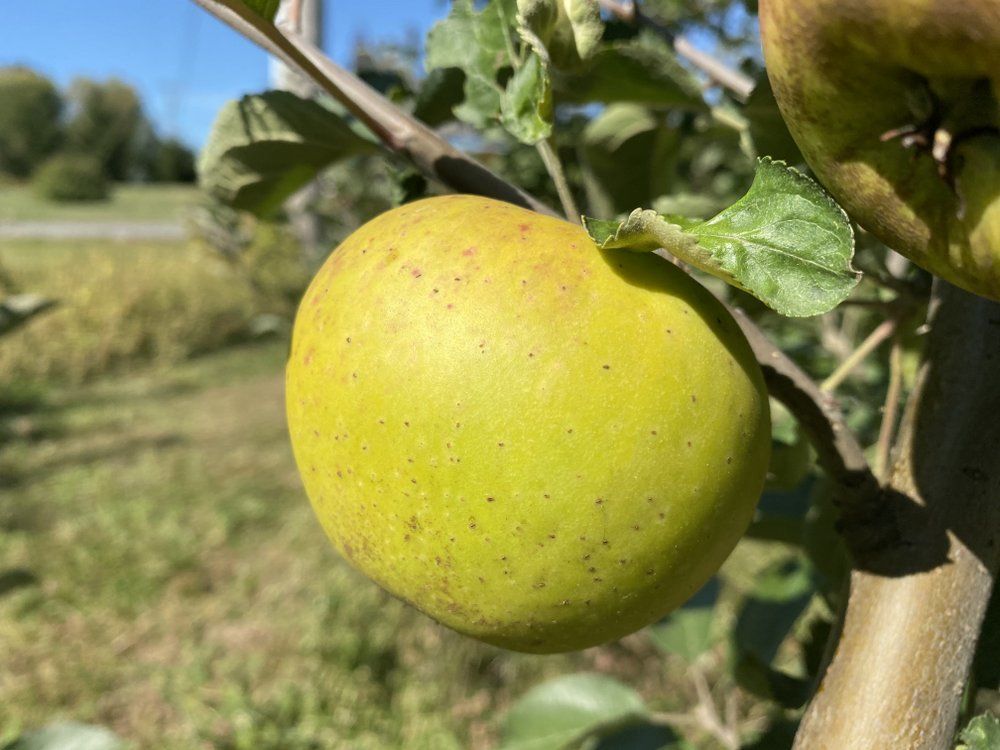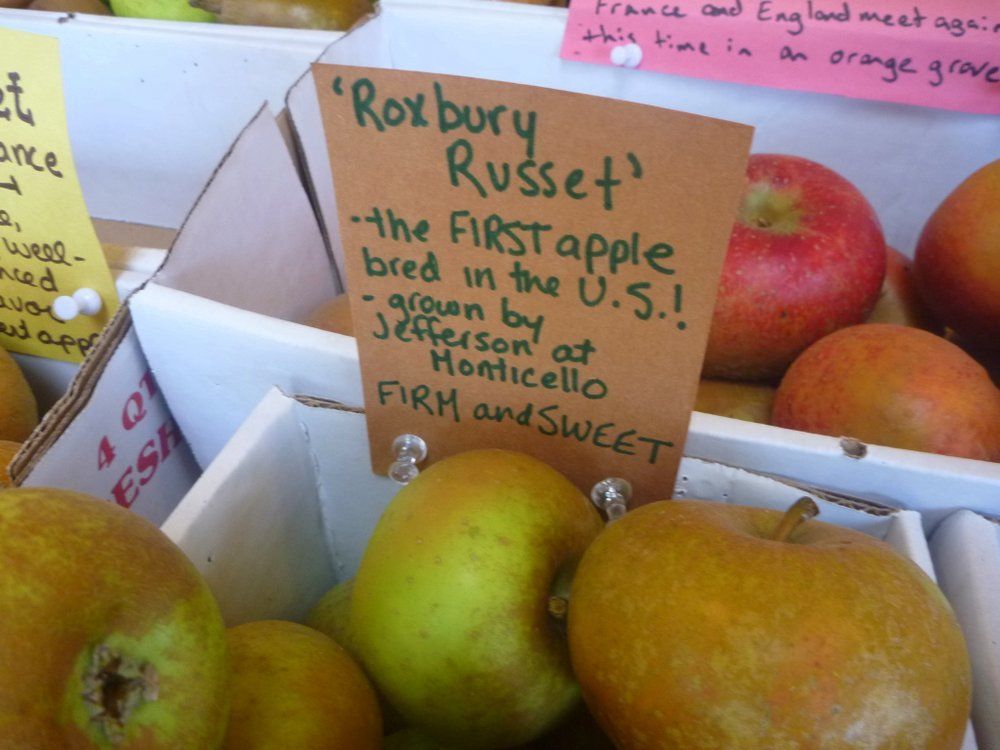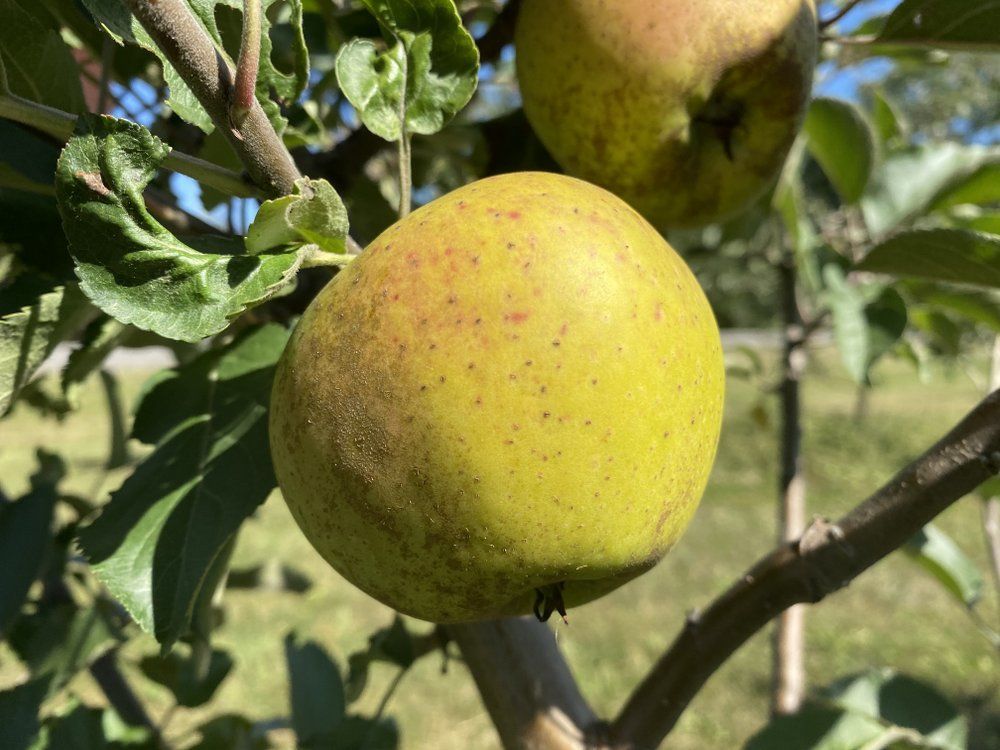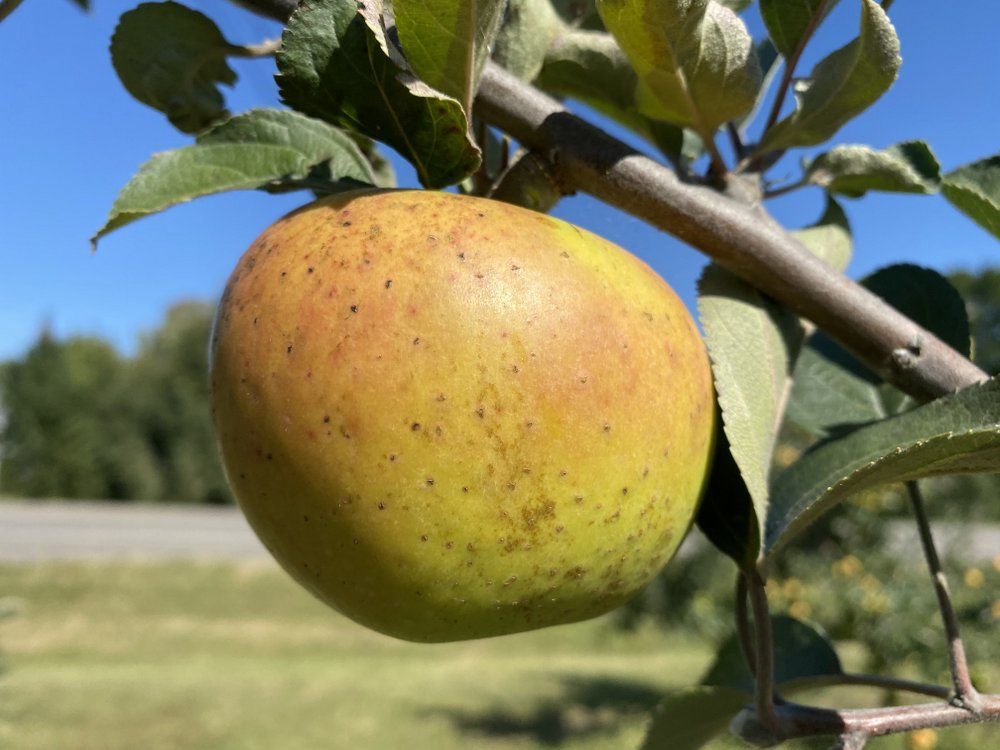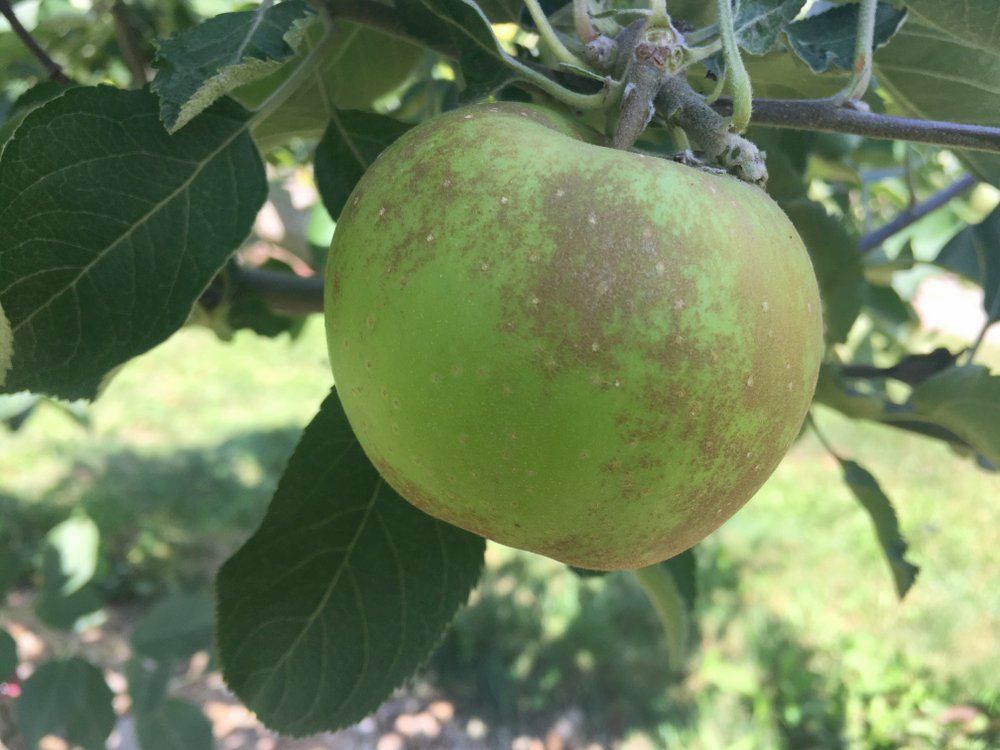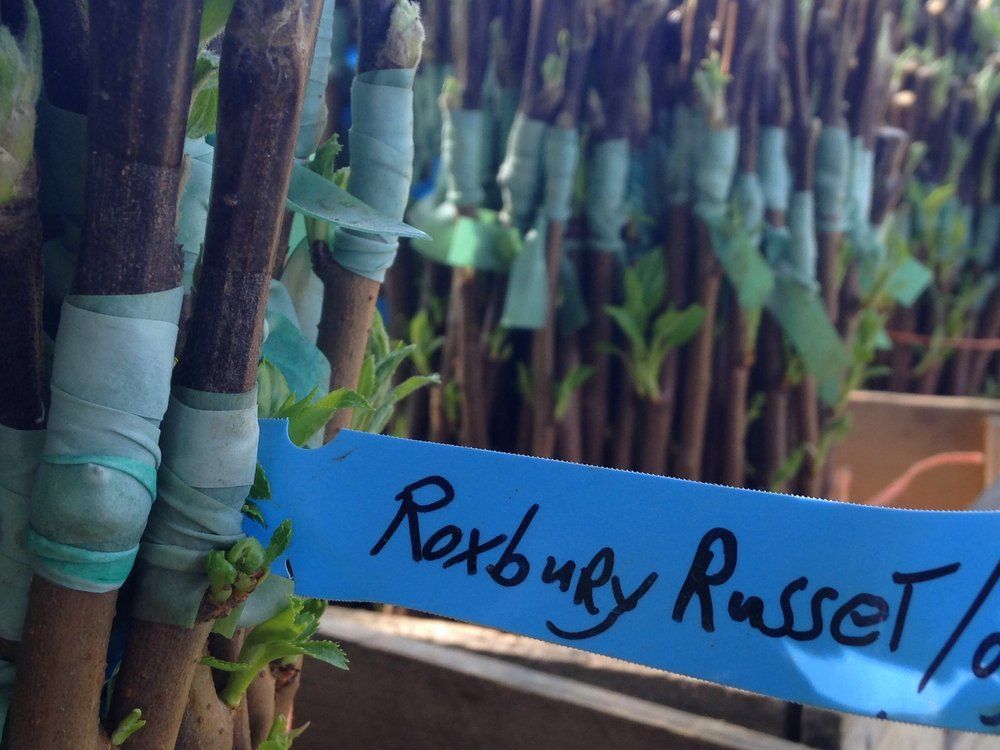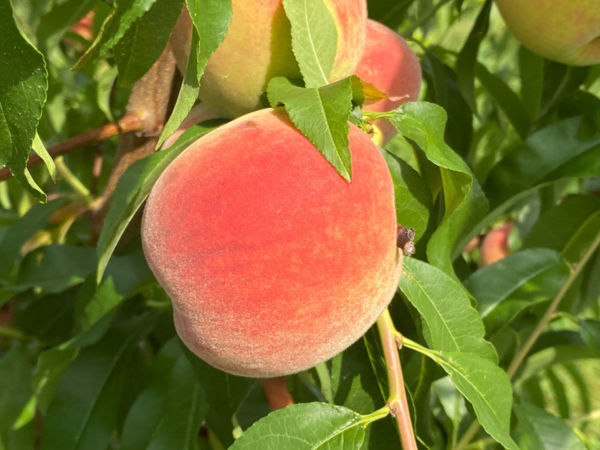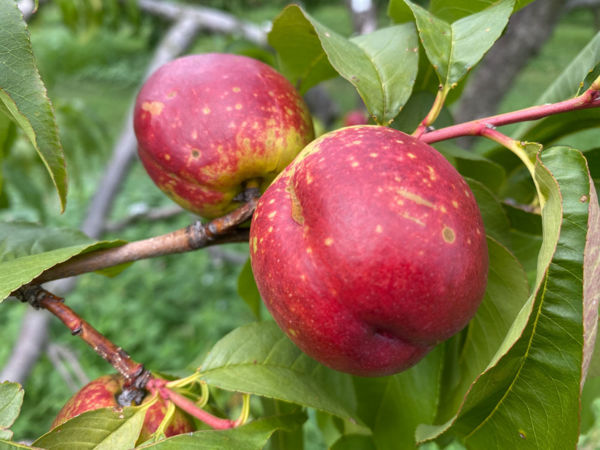An attractive, highly disease-resistant apple, ideal for organic growers.
Roxbury Russet Apple Scionwood (Spring 2024)
One of America's oldest apples, good for storage, baking, and cider. Also known as Belpre Russet, Boston Russet, Hewe's Russet, Putnam Russet, Leather Coat.
A cold-hardy, high vigor, open-spreading tree, Roxbury is triploid and will require two diploid pollenizers for full fertility. Reports on disease resistance vary wildly; in our orchards we find that it is mildly susceptible to all major diseases, but that its vigorous growth tends to outpace these problems. It has a slight tendency (easily managed by thinning) to biennialism. Roxbury is tip bearing.
This late-season apple is large, green-gold, and covered with a fine russet that thickens toward the stem. The flesh is hard, granular, and crunchy. Almost inedibly tart when first harvested, it will sweeten and mellow in storage. It needs to be harvested promptly as it has a tendency to drop, but it will store well through the winter. Roxbury is an excellent baker, and it is a favorite with cider makers. From WSU: Tannin (percent tannic acid): 0.08; Acid (percent malic acid): 0.61; pH: 3.50; SG: 1.061; °Brix: 15.9.
Along with Rhode Island Greening, this is one of the oldest varieties native to America. It first grew on the farm of Ebenezer Davis in Roxbury, Massachusetts early in the 1600s. In the late 1700s, it was brought to Marietta, Ohio and sold by Putnam Nursery under the names Putnam Russet and Marietta Russet. It was also known as Shippens Russet in New York for a brief period, when it was cultivated by Chief Justice Shippen.
Volume Pricing
| Quantity | Roxbury Russet Apple Scion |
|---|---|
| 1 | $12.00 |
| 2-5 | $7.00 |
| 6-10 | $6.00 |
| 11-99 | $5.00 |
| 100+ | $4.00 |
The Fruit
Fruit Type
Category: Apple
Subcategory:
Heirloom, Cider, Cold-Hardy
Fruit Uses & Storage
Uses: fresh eating, cider, baking, storage, sauce
Cider classification: sharp
Storage duration: three plus months (approximate, depending on storage conditions)
Fruit Appearance
Skin color: russeted
Flesh color: off-white
Fruit Origins
Parentage: unknown
Origin: Roxbury, Massachusetts
Introduced in: 1649
Introduced by: Ebenezer Davis
The Environment
Calendar & Geography
USDA zones: 4 - 7
Chill hours: 1000
Ripening date: Oct 20 (approximate, in New York State) + 35 days after McIntosh
Diseases & Pests
glossary
Apple Scab: Susceptible
Cedar-Apple Rust: Susceptible
Fireblight: Susceptible
Powdery Mildew: Susceptible
Pollination
Pollination Factors
glossary
Bloom group: 3
Is it self-fertile? N
Is it fertile? N
Ploidy: Triploid
Pollination Partners
This table shows the first few results from a full search for pollenizers of Roxbury Russet Apple. Please see our Pollenizer Search to run other queries and read how the application uses various factors. Also read more about fruit tree pollination.
| Tree | Currently in Stock |
|---|---|
| Virginia Crab Apple | 0 |
| Florina Apple | 0 |
| Porter's Perfection Apple | 0 |
| Elstar Apple | 0 |
| Rubinette Apple | 0 |
| St. Edmund's Russet Apple | 0 |
| Spitzenburg Esopus Apple | 0 |
| Liberty Apple | 0 |
| Mother Apple | 0 |
| Binet Rouge Apple | 0 |
| Freyberg Apple | 0 |
See all pollination matches for Roxbury Russet Apple
Featured Products
A few things we're loving right now...
A full-flavored, freestone white peach.
One of America's oldest apples, good for storage, baking, and cider.
A widely-grown, large, yellow-fleshed nectarine.

